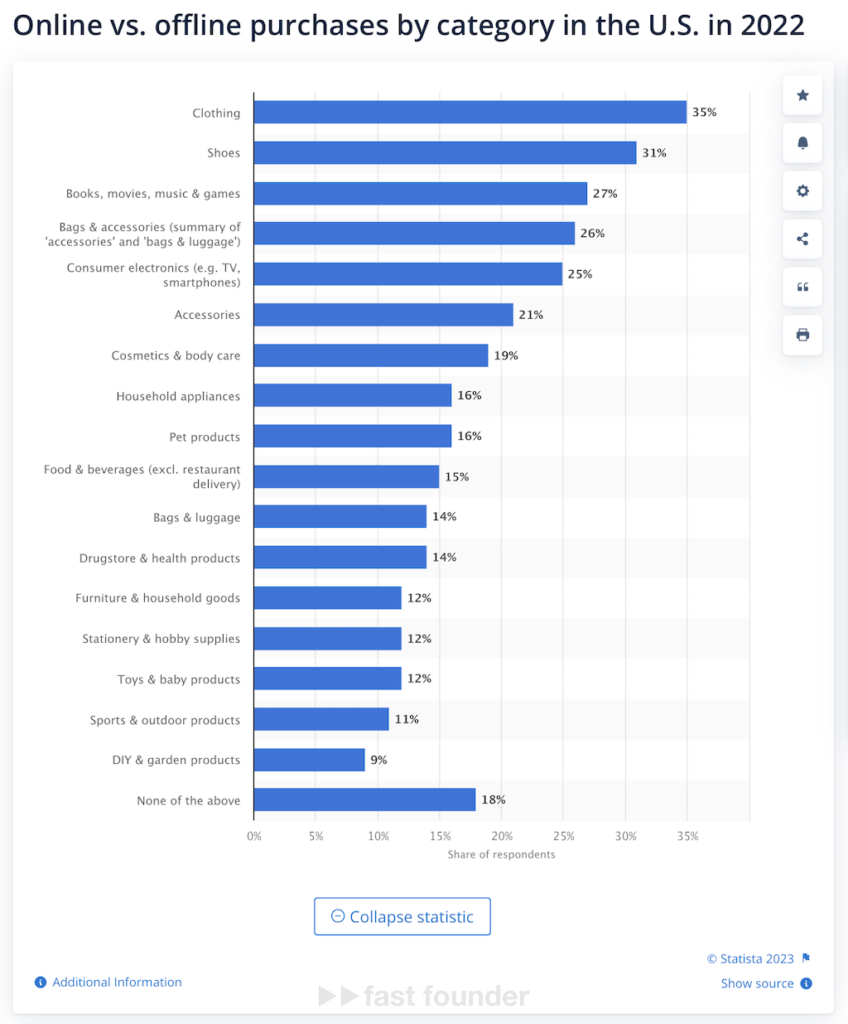E-commerce is called a huge market, even though online retail sales account for only 28%. The remaining 72% is offline! Want to create a giant like Amazon or Shopify? Forget the internet 😉 Build a tech platform that allows manufacturers to establish sales offline. How? Here are two examples that are just begging to be copied quickly.
The essence of the project
The D2C (Direct-To-Consumer) model implies that manufacturers working with this model sell their products through their own websites.

However, FairDeal Market has created a digital platform that allows online D2C brands to establish sales of their products through third-party offline retail stores.

If an online D2C brand decides to open an offline sales direction, it will need to:

Or they can turn to FairDeal Market, which will take on all these tasks and challenges, engaging in:

“Based on the data” is the key phrase! FairDeal Market constantly emphasizes that it has built a digital platform that collects and analyzes data on offline sales of all brands with which the startup collaborates.
This allows the platform to select the most suitable stores by type and geography to start selling products of a new brand partner, based on sales data of similar products from other brands.
Then, as sales data for specific products of a specific brand in specific stores becomes available, the current set of stores will be optimized, and new hypotheses will emerge about which other stores it would be worth starting to sell these products in.

Creating and expanding offline sales infrastructure won’t increase the hassle for the brand itself — the startup handles communication with stores (including collecting money for sold products and transferring it to the brand), warehousing, and logistics.
At the same time, it aims to streamline the sales process “on the fly” so that there are no excess stockpiles in intermediate warehouses and on store shelves – only as much as will be sold in the near future.

FairDeal Market promises new brand partners to place their products in 100 stores suitable for selling their products within 7 days of contacting them.

For this, the brand needs to upload its product catalog to the FairDeal Market platform, after which the platform will automatically suggest a list of stores that are best suited to start selling these products. The brand just needs to click the “Agree” button and allow the startup’s logistics to pick up the first batch of products for placement in these stores.
From there, the brand only needs to monitor sales indicators on the platform’s special dashboard and continue to accept platform proposals for optimizing and expanding the set of stores selling its products.

FairDeal Market hails from India, was founded last year, and operates in the local market. Currently, it has 20 brand partners selling their products through their platform and a network of 50,000 offline partner stores from 7 cities that are already selling or are ready to sell products offered by the platform.
Partner stores and FairDeal Market itself earn commissions on products sold through the platform.
The startup has now raised its first investment of 2 million dollars.
What’s interesting
In India, there is already a vast number of small retail stores, and, like everywhere in the world, the number of D2C brands and local product manufacturers is growing.

By 2027, the sales volume of these products will surpass the $100 billion mark annually. “If FairDeal simply efficiently delivers on what it promises and can snatch at least 1% of this volume, it has every chance of becoming a very valuable startup,” explains a representative of one of the funds that participated in the investment round.
Generally speaking, offline retail is a market that many of today’s startups undervalue, blinded by the internet 😉.

And this applies even to markets considered very advanced in terms of the internet – for example, in the USA, where the volume of offline sales by 2028, according to research agency Forrester, will grow to $4.2 trillion. If we calculate in percentages, offline retail will account for 72% of the total retail sales volume by then, with online sales making up only the remaining 28%.
72% is an average figure, and naturally, it varies for different product categories. Here are some figures from the USA for 2022, which align with Forrester’s estimates regarding the online and offline sales ratio for different product categories.

Online sales are best for clothing, shoes, books, movies, music, games, bags, and consumer electronics — but their online sales share is only around 25-35%.
Online sales are much worse for furniture, interior items, stationery, sporting goods, toys, and home and garden items — where the online sales share ranges between 9-12%.

Meanwhile, offline retail continues to grow, despite the increasing popularity of online sales. In 2021, after the lockdown, when people, missing real shopping, flocked to stores en masse, offline sales growth hit a record 14%. Now, of course, the growth rate has dropped, but since the 2000s, it has remained relatively stable at 2-3%.
Offline is an excellent way for brands accustomed to trading online to scale their sales, especially if they want to make a significant leap in development. This trend hasn’t been missed by FairDeal Market alone.

The startup Leap, which offers brands that already have their online stores to open their own offline stores — also “based on data.” Meanwhile, Leap, like FairDeal Market, takes care of location scouting, rental contracts, and operational activities — charging brands a share of sales. Leap has already raised $79 million for this.
Where to go Offline retail is much larger than online retail — from 2 to 10 times, depending on the product category.
But on the “small” online market, there’s a large platform like Shopify, where D2C brands can set up their online stores, use payment and logistics systems integrated into the platform, and apply tools for sales optimization.
In the “big” offline world, such large comprehensive and digital platforms are not very noticeable. Probably because all tech-savvy startups chose the technological internet as the focus of their efforts 😉. However, the most significant gains from applying new technologies can be obtained precisely in traditional and conservative markets — where it can become a sharp and qualitative leap.
Therefore, the direction of movement is to create a “Shopify for offline”, i.e., technological platforms that allow product manufacturers to outsource the construction and management of offline sales infrastructure, relying on data.
There are essentially two options for this — either a) push products into existing offline stores, like FairDeal Marker, or b) open their own offline stores, like Leap.
So, the only thing left is to choose which one of them you decide to replicate 😉
About the company
FairDeal Market Website: fairdeal.market
Latest funding round: $2M, 29.09.2023
Total investments: $2M, rounds: 1.
